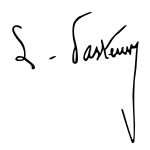
Back Louis Pasteur Afrikaans Louis Pasteur ALS ሉዊ ፓስቴ Amharic Louis Pasteur AN لويس باستور Arabic لوى باستور ARZ লুই পেষ্ট'ৰ Assamese Louis Pasteur AST Lui Paster Azerbaijani لویی پاستور AZB
Louis Pasteur | |
|---|---|
 Photograph by Nadar | |
| Born | 27 December 1822 Dole, France |
| Died | 28 September 1895 (aged 72) Marnes-la-Coquette, France |
| Education | |
| Known for | Anthrax vaccine Cholera vaccine Rabies vaccine Chirality Dextran Fermentation theory Galactose Germ theory of disease Kinetic resolution Koch–Pasteur rivalry Liebig–Pasteur dispute Pasteurization Pasteur effect Pasteur pipette Pasteur–Chamberland filter Racemic acid Spontaneous generation Swan neck flask Stereochemistry Zymology |
| Spouse | |
| Children | 5 |
| Awards |
|
| Scientific career | |
| Fields | |
| Institutions | |
| Notable students | Charles Friedel[2] |
| Signature | |
 | |
Louis Pasteur ForMemRS (/ˈluːi pæˈstɜːr/, French: [lwi pastœʁ] ⓘ; 27 December 1822 – 28 September 1895) was a French chemist, pharmacist, and microbiologist renowned for his discoveries of the principles of vaccination, microbial fermentation, and pasteurization, the last of which was named after him. His research in chemistry led to remarkable breakthroughs in the understanding of the causes and preventions of diseases, which laid down the foundations of hygiene, public health and much of modern medicine.[3] Pasteur's works are credited with saving millions of lives through the developments of vaccines for rabies and anthrax. He is regarded as one of the founders of modern bacteriology and has been honored as the "father of bacteriology"[4] and the "father of microbiology"[5][6] (together with Robert Koch;[7][8] the latter epithet also attributed to Antonie van Leeuwenhoek).[9]
Pasteur was responsible for disproving the doctrine of spontaneous generation. Under the auspices of the French Academy of Sciences, his experiment demonstrated that in sterilized and sealed flasks, nothing ever developed; conversely, in sterilized but open flasks, microorganisms could grow.[10] For this experiment, the academy awarded him the Alhumbert Prize carrying 2,500 francs in 1862.
Pasteur is also regarded as one of the fathers of germ theory of diseases, which was a minor medical concept at the time.[11] His many experiments showed that diseases could be prevented by killing or stopping germs, thereby directly supporting the germ theory and its application in clinical medicine. He is best known to the general public for his invention of the technique of treating milk and wine to stop bacterial contamination, a process now called pasteurization. Pasteur also made significant discoveries in chemistry, most notably on the molecular basis for the asymmetry of certain crystals and racemization. Early in his career, his investigation of sodium ammonium tartrate initiated the field of optical isomerism. This work had a profound effect on structural chemistry, with eventual implications for many areas including medicinal chemistry.
He was the director of the Pasteur Institute, established in 1887, until his death, and his body was interred in a vault beneath the institute. Although Pasteur made groundbreaking experiments, his reputation became associated with various controversies. Historical reassessment of his notebook revealed that he practiced deception to overcome his rivals.[12][13]
- ^ "II. Abdülhamid'in Fransız kimyagere yaptığı yardım ortaya çıktı". CNN Türk. Archived from the original on 26 December 2018. Retrieved 29 December 2016.
- ^ Asimov, Asimov's Biographical Encyclopedia of Science and Technology 2nd Revised edition
- ^ Ligon, B. Lee (2002). "Biography: Louis Pasteur: A controversial figure in a debate on scientific ethics". Seminars in Pediatric Infectious Diseases. 13 (2): 134–141. doi:10.1053/spid.2002.125138. PMID 12122952.
- ^ Adam, P. (1951). "Louis Pasteur: Father of bacteriology". Canadian Journal of Medical Technology. 13 (3): 126–128. PMID 14870064. Archived from the original on 30 April 2021. Retrieved 29 April 2021.
- ^ Feinstein, S (2008). Louis Pasteur: The Father of Microbiology. Enslow Publishers, Inc. pp. 1–128. ISBN 978-1-59845-078-1.
- ^ Fleming, Alexander (1952). "Freelance of Science". British Medical Journal. 2 (4778): 269. doi:10.1136/bmj.2.4778.269. PMC 2020971.
- ^ Tan, S. Y.; Berman, E. (2008). "Robert Koch (1843–1910): father of microbiology and Nobel laureate". Singapore Medical Journal. 49 (11): 854–855. PMID 19037548. Archived from the original on 22 April 2021. Retrieved 29 April 2021.
- ^ Gradmann, Christoph (2006). "Robert Koch and the white death: from tuberculosis to tuberculin". Microbes and Infection. 8 (1): 294–301. doi:10.1016/j.micinf.2005.06.004. PMID 16126424.
- ^ Lane, Nick (2015). "The unseen world: reflections on Leeuwenhoek (1677) 'Concerning little animals'". Philosophical Transactions of the Royal Society of London. Series B, Biological Sciences. 370 (1666): 20140344. doi:10.1098/rstb.2014.0344. PMC 4360124. PMID 25750239.
- ^ Seckbach, Joseph, ed. (2004). Origins: Genesis, Evolution and Diversity of Life. Dordrecht, The Netherlands: Kluwer Academic Publishers. p. 20. ISBN 978-1-4020-1813-8.
- ^ Ullmann, Agnes (August 2007). "Pasteur-Koch: Distinctive Ways of Thinking about Infectious Diseases". Microbe. 2 (8): 383–387. Archived from the original on 10 May 2016. Retrieved 12 December 2007.
- ^ Geison, Gerald L (1995). The Private Science of Louis Pasteur. Princeton, NJ: Princeton University Press. ISBN 978-0-691-01552-1. Archived from the original on 26 October 2014. Retrieved 26 October 2014.
- ^ Anderson, Christopher (19 February 1993). "Pasteur Notebooks Reveal Deception". Science. 259 (5098): 1117. doi:10.1126/science.259.5098.1117.b. ISSN 0036-8075. PMID 8438162.